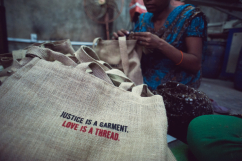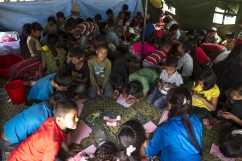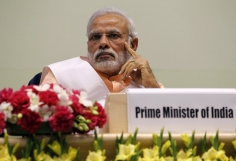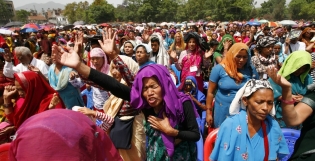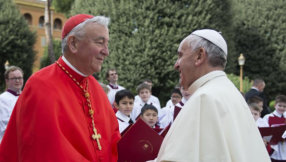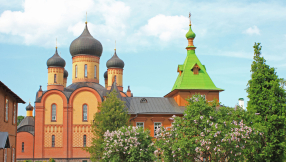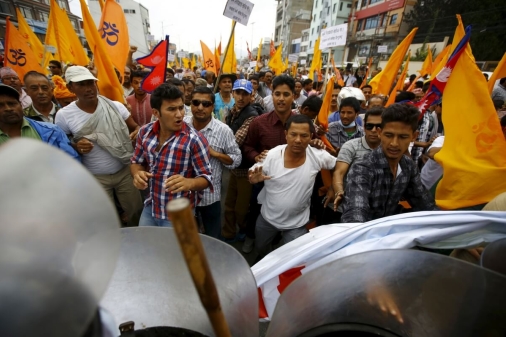
Nepal's Constituent Assembly rejected a proposal on Monday to declare the country a Hindu state. Hours later, bombs went off at two churches in Jhapa district in the east of the country, attacks that have widely been blamed on radical Hindu groups though no one has yet claimed responsibility.
The blasts followed weeks of violent demonstrations as Nepal grapples with the drafting of its new constitution. Of particular tension has been the right-wing Rashtriya Prajatantra Party's (RPPN) call for Nepal to revert to being named officially Hindu, as it was until 2007, in addition to its demand for a ban on all religious conversions. The government agreed to the latter in July, but this week rejected the former.
Nepalese Christians account for less than two per cent of the country's 26.5 million population, which is overwhelmingly Hindu, and Christian Solidarity Worldwide (CSW) has warned that religious freedom for Nepalese citizens could be "severely curtailed" under new legislation. Though Nepal has retained its secular status, minority groups may still be at risk.
"The state of religious freedom in Nepal, if anything, is more at stake now than ever before," CSW's South Asia Advocacy Officer Steven Selvaraj told Christian Today. The final draft of the new constitution, which will come into force upon being promulgated by President Ram Baran Yadav on Sunday, is believed to include a clause that states: "No one shall behave, act or undertake activities that breach public order or break public peace/peace in the community; and no one shall attempt to change or convert someone from one religion to another, or disturb/jeopardise the religion of others, and such acts/activities shall be punishable by law."
"We will have to wait and see, but if it does come to pass...it's going to stifle the freedom of religion or belief," Selvaraj said. He warned that it would undermine the universally guaranteed freedom of religion and the expression of that religion; something he said was very worrying.
Traditionally, different faith groups have lived alongside one another fairly harmoniously in Nepal, though there have always been tensions between radical Hindu groups and those of minority faiths. "These tensions have evolved into something bigger," Selvaraj said, "it's clear now that the RPPN is not going to sit down and do nothing about it. It's obviously trying to push for the protection of the Hindu faith."
The RPPN currently holds just 24 of 601 seats in the Constituent Assembly, pushing it far outside of the four major parties in Nepal, but a strong line on the pursuit of Hindu ideals has caused it to gain popularity. In the last census, conducted in 2011, 81 per cent of Nepalese citizens identified themselves as Hindu. In general, Nepalese people are very religious, Selvaraj added, and it is clear from the church blasts earlier this week – in addition to a bombing at a police station – that there are groups who are unhappy with the government's decision to retain its secular identity. (Secularism in Nepal carries connotations of being in opposition to religion, rather than simply indifference as it does in the West).

The main concern, however, appears not to be the violent response of fringe groups like the RPPN, but rather the inclusion of anti-conversion legislation in the constitution. "It's encouraging to know that the spirit of recognising the fundamental freedom of peoples are preserved" by refusing to return to a Hindu state, Selvaraj said, but there is a fear that banning conversions is a way to curtail the activities of religious minorities. He explained that there has been a greater number of conversions to Christianity since 2007, but under new laws, missionaries could find themselves sanctioned for proselytising.
Five states in neighbouring India currently have anti-conversion laws which state that those who wish to convert to another religion must first gain official permission. Religious leaders are also required by law to report conversions or risk a three-year jail sentence themselves. In addition, the religious wing of India's ruling Bharatiya Janata Party uses nationalist ideology to promote Hinduvata – equating being Indian with having a Hindu faith. Boasting almost seven million members, it regularly holds "reconversion" programmes, where Indian minority communities are encouraged to turn to Hinduism. The group has claimed that conversion to faiths other than Hinduism, including Christianity, is the root of terrorism.
"One of the worrying aspects of all of this is that Nepal is just next to India, which has the largest Hindu population in the world. And although India is on paper a secular state, one of the things we should be watching for is the influence Hinduvata could have on Nepal," Selvaraj concluded. "We will have to wait and see."










